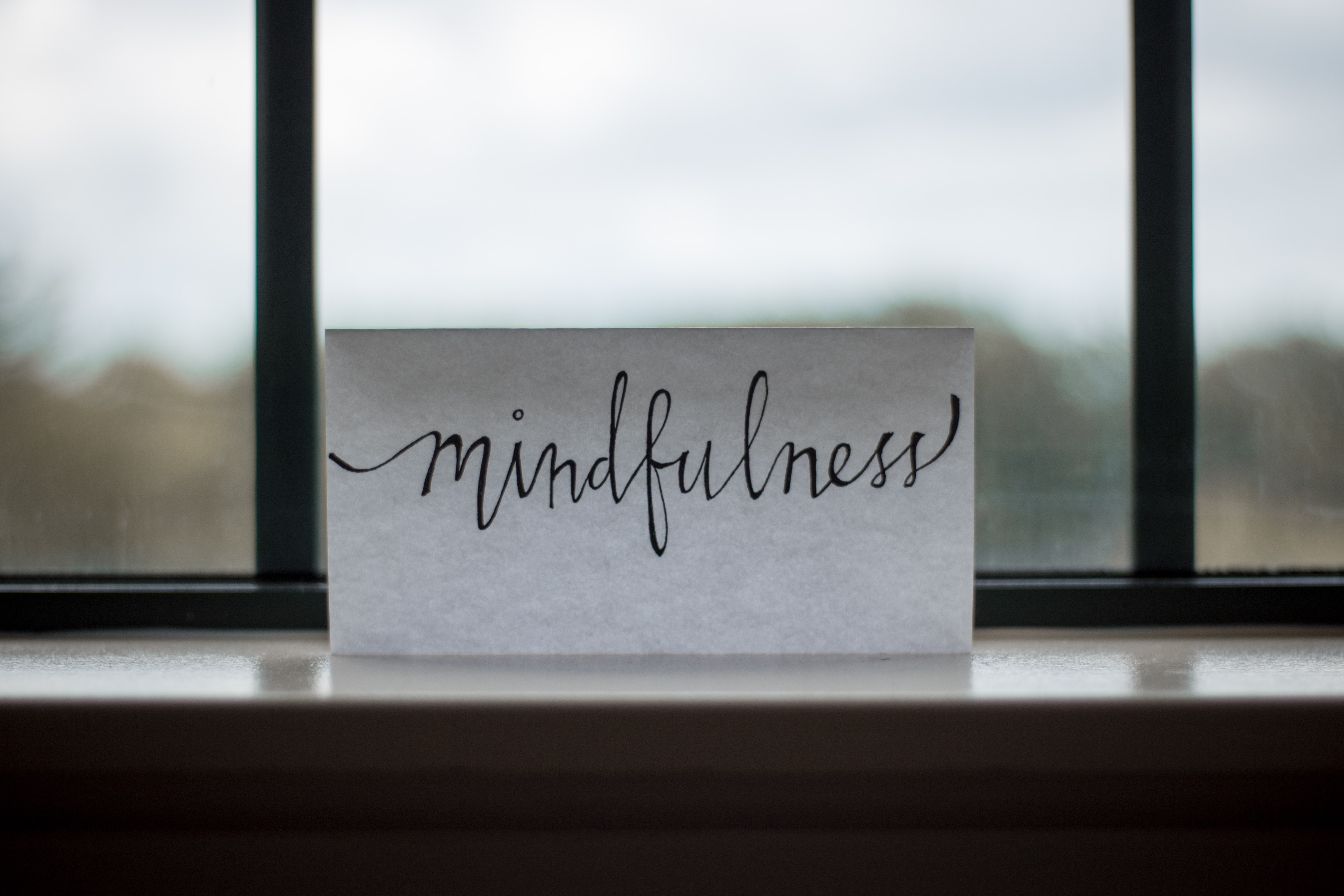Simcha Fisher is a speaker, freelance writer and author of The Sinner’s Guide to Natural Family Planning. She blogs daily at simchafisher.com and weekly at The Catholic Weekly. She lives in New Hampshire with her husband and 10 kids.
This article was originally published in America Magazine on May 18, 2017 and is reprinted with permission of the author.
February 21, 2020
“Now, Simcha,” my therapist said carefully. “When I say the word ‘mindfulness,’ what comes to mind?”
“Dirty hippies,” I snapped. Sometimes I unexpectedly turn into Richard Nixon. I’ll show you mindfulness! With the back of my hand!

Luckily, my therapist has a sense of humor. But what’s an old-school sorehead like me doing on a therapist’s couch? When I was growing up, I thought therapy was for wobbly, neurotic, Woody Allen types or for weirdos harboring secret, unspeakable appetites. With age, my prejudice shifted, and I decided that therapy was for bored, white suburbanites casting around for something profoundish to fill their empty hours. “Mindfulness” was a synonym for “navel gazing,” and I had no time or need for nonsense like that. I had a life to live.
Besides, I was Catholic. You pray, you receive the sacraments, you imitate the saints. What more guidance do you need? What, being in a state of grace isn’t good enough for your precious snowflake self?
Frankly: No. It was not enough. All my life, true holiness felt unattainable to me. I wanted to master my vices, to be selfless and to turn the other cheek, to fill my days with prudence, justice, temperance, fortitude, faith, hope and love.
But it is hard to pursue virtue when you are quaking with anxiety, mired in depression or paralyzed with petty rages. And by “hard,” I mean it is impossible.
How do you rejoice in the Lord always when [you] cannot stop crying? How do you forgive when you do not know how to stop replaying an insult on an endless loop? How do you die to self when you’re not completely sure who that self is? How do you thank God for God’s goodness when feeling good makes you feel guilty? How do you thirst after eternal life when the only thing that appeals to you is death?
Therapy has been a literal Godsend for me. I finally realized you cannot rise and follow Christ if you are psychologically crippled. You can try, and God will honor your effort, but you won’t get far.
My therapist is not Catholic. I don’t know if he even believes in God. But he does respect my beliefs, and he does do God’s work, as so many therapists do. The good mental health practices I have been learning with him are strengthening and restoring me so I am freer to follow Christ.
The church says temptation is not sinful but giving in to temptation is. The church bids us to use our free will, rather than being a slave to our passions. Easier said than done! But my therapist has helped me to pause before reacting, to identify without guilt the emotions that come unbidden and then to deliberately choose how to act in a way that satisfies my conscience.
The church teaches humility, which means accepting who we are, in relation to God and others. How? In therapy, I am learning how to stop believing every negative judgment and rejecting every optimistic idea about myself and others.

Christ teaches us that he is present in every living person – but he can be awfully hard to see. My therapist is helping me deal with people simply and directly, rather than analyzing their potential hidden motivations. This makes most people far easier to treat with love.
Catholics routinely examine our consciences, assessing our actions throughout the day, to build on our virtuous habits and root out the vicious ones. Mindfulness – yes, mindfulness! – keeps us grounded in the present, making us aware that our actions are choices, and we can control them.
The church insists that we learn to recognize and respond to the voice of Jesus, and to reject the calls of the world, the flesh and the devil. Therapy teaches us to challenge habitual, destructive narratives and to ask ourselves: “Who is speaking? Where do these ideas in my head come from?”
The church teaches that our bodies and souls are integrated and that the Holy Spirit comes to us through fleshly means. In therapy, I’ve learned how to regulate my physical responses to the world, which engenders a healthier emotional response.
And Jesus said: “Let the dead bury the dead. Come and follow me.” A good therapist shows you how to leave the unchangeable past behind and how to step deliberately into the future.
Which is not to say a good therapist can replace Jesus. The things I learn in therapy are simply tools to be put in service of my goal of salvation. I constantly question what I learn, assessing whether I am growing in charity or just navel gazing. Sometimes, I have to take my therapist’s words with a grain of salt or filter then through a Catholic lens. More often, I discover that my lifelong spiritual failings are actually emotional wounds. And as they heal, it becomes easier to follow Christ.
Now, it is entirely possible for therapy to warp or block spiritual growth. I have seen folks graduate from therapy as monsters of selfishness. Whether they got bad advice or just drew the wrong conclusions, I do not know; but all they learned was how to yammer endlessly about their needs and their comfort zone – and to label as “toxic” anything that might encroach on them.
They do not become more healthy or more whole. Instead, they skim off the top what good therapy has to offer, indulging in pop psychology, which collects the trappings of self-knowledge and uses them as camouflage, rather than as tools for transformation.
It turns out it is very possible to do the same thing with religion – which brings me full circle to the struggles I had with Catholicism before I discovered therapy. The faith I tried so hard to practice was a faith made of exteriors, of trappings, of white-knuckle works without love. It was a pop faith as empty and trivial as the pop psychology I scorned. I could not know God because I did not know myself. For my faith to grow deeper, I needed to grow stronger.
Pop psychology, and the self-indulgent kind of therapy that goes with it, will drive you away from following Christ. But so will pop Catholicism, which expects you to take up your mat and walk without ever being healed first.
So, mindfulness. It still makes me think of a nouveau riche bohemian balancing crystals on her forehead. But I can live with that. It just feels good to be able to live. It makes me feel like I want to do it eternally.
– Simcha Fisher





